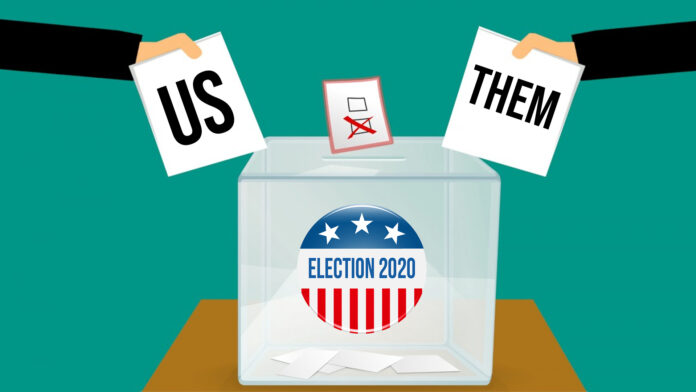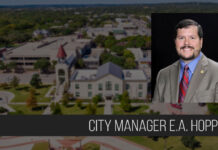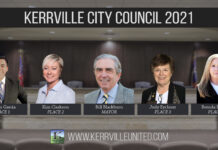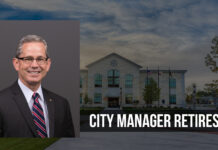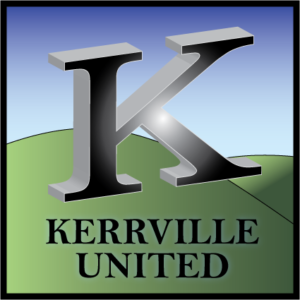Authored by Aaron Yates
Pop quiz… Determine which political party sponsored or supported the following local laws or initiatives:
- Lowering the property tax rate
- Adopting an austere (smaller) budget
- Freezing employee pay raises
- A major investment into street maintenance
- Earmarking certain tax dollars to revitalize downtown
- Attracting a major manufacturer to town
- Completing a new water well for long-term supply increase
- Supporting a major health initiative in a historically underfunded part of Kerrville
- Adopting and executing a progressive comprehensive plan for the next 30 years
If you’ve been paying attention to our site, you’ll know that this is a trick question. No political parties sponsored or supported any of these initiatives, because the City of Kerrville is led by a nonpartisan council. Each of these initiatives was put forth and supported by the current city council, which is made up of two men and three women, four of which identify as conservative Republicans, and one of which identifies as a moderate Democrat, having voted for both political parties during his voting years. But none of the council members display or discuss their party designations while serving in their official capacities. All of the work is nonpartisan.

Without any party labels, city elections can be intimidating for voters. Without a party label, how do I know whom to vote for? How do I know what their values are? What are their stances on issues that matter to me? These questions are much harder for the average voter to answer for themselves before a municipal election. Local elections are hard. And that’s not a bad thing.
Why are city elections nonpartisan?
The short answer is that our city’s charter forbids partisan labels for city council races and for city council members on the dais. Section 3.01 of the city’s charter states that all elected members “shall assume the duties of office without party or partisan mark or designation.”
Kerrville voters may recall the issue arising in the 2014 mayoral election in which one candidate used campaign yard signs with the “R” designation, leading some voters to conclude that he was the only Republican in the race. Council discussed the matter at the time, and at least one member asked to hold the candidate in violation of the ethics policy, and the consensus of the council in that discussion was that the use of partisan designations violates the spirit of the ethics law and the charter.
Only about 20-25% of cities in the United States have partisan elections. Major cities such as Los Angeles, Chicago, Phoenix, Philadelphia, Dallas, San Antonio, and scores of others hold nonpartisan elections. Kerrville has never had a partisan municipal election.
What are the benefits and consequences of the nonpartisan format?
Volumes of studies and commentary have been written about the various pros and cons of nonpartisan local elections. Here are the pros and cons summarized:
| Pros | Cons |
| Cooperation between elected officials belonging to different parties is more likely | The absence of party labels confuses voters |
| The issues that divide political parties are irrelevant to the scope of local power | Nonpartisan elections may have lower turnout than partisan elections |
| Fundraising places the burden on the individual candidate rather than the party machinery | Local groups may emerge that simulate party control and may influence elections the same way that parties do |
| Campaigns focus on issues that matter to voters rather than party agendas | Nonpartisan elections tend to favor Republicans and incumbents |
How has this played out in Kerrville?
Kerrville had been mostly immune from overt partisan campaigning until the mid-2000s. That’s not to say that partisanship didn’t exist, but according to local observers, it was not overt. Beginning in 2014, a group of political activists began using partisan designations and rhetoric on the campaign trail, pushing local elections and city leadership into a much more highly charged political environment.
In 2016, staunch Republican activist Bonnie White became mayor after winning a very close race with a relatively high turnout for a city election. She employed a more divisive leadership style on council, often sparring with city staff and other members of council that opposed her. In 2017, in a very low-turnout election, two of her allies gained seats on council — Vincent Voelkel narrowly defeated incumbent Stephen Fine, and George Baroody ran unopposed, after having previously lost two contested elections. This trio of White, Voelkel, and Baroody changed the dynamics of city leadership again, pitting the council majority against staff and against the more traditional leadership styles of Mary Ellen Summerlin and Warren Ferguson. By this time, the City Manager, Todd Parton, and several of his staff, had resigned. The city’s Economic Improvement Corporation was churned and the White’s allies were installed to replace members before their terms expired. The head of the local Economic Development Corporation resigned after fierce debates raged at the EIC and council meetings, and after funding was threatened. This made for a bitter and dangerous environment for business, and economic improvement proved to be impossible.
As a counter to this divisive leadership style, candidate Bill Blackburn campaigned for mayor in 2018 against Mrs. White. Blackburn, a retired Baptist minister and long-time community servant, identified himself as a moderate Democrat, and once again, bitter partisan attacks ensued during that mayor race. White supporters told voters that Blackburn wished to install an “abortion on demand” clinic, and would “take away your guns.” The election became so heated and politically charged that two events at the polling place during the last days of voting shook the local electorate. Bonnie White’s husband Robert created cartoons depicting Blackburn and his supporters as swamp monsters, and then was accused of harassing women and children at the polling place, alienating some voters and shocking others. In the end, Blackburn roundly defeated White by a margin of 24 percentage points. A Democrat had unseated an incumbent Republican in a rebuke of the vitriolic leadership style that the latter had employed during her tenure as mayor.
One year later, White’s allies were soundly defeated by Gary Cochrane and Kim Clarkson, both of which had strong Republican credentials, but were accused of being “liberal” and “Democrats” during the campaign. Pamphlets were circulated accusing Cochrane and Clarkson of not being “true” Republicans. Rumors were spread at various Republican groups that they were closet liberals. Despite the attacks, the electoral victories of Cochrane and Clarkson closed the door on the White’s influence on council, for the time being.
The current council of Cochrane, Clarkson, Blackburn, Eychner, and Sigerman changed the tone of city politics, and ushered in an era of civility around local issues that had not flourished since the early 2000s before the partisan animosity began to emerge. With that stability came progress — the city opened new sections of river trail, made progress on city street maintenance, lowered the tax rate, established programs to reinvigorate downtown, supported programs to provide health services to low-income neighborhoods, and provided calm and steady leadership when COVID-19 appeared in early 2020.
Standard & Poors, an independent global debt ratings agency, recently noted, “very strong management, with strong financial policies and practices,” as part of the reason to give Kerrville a “AA” bond rating, which is the second highest rating available, and is relied upon by creditors worldwide when assessing the city’s ability to repay bonds. The stability of this council was also credited by Kristen Hedger of Killdeer Mountain Manufacturing when a deal was struck for that airplane parts manufacturer to bring hundreds of jobs to Kerrville over the next two-plus decades.
In short, the nonpartisan, stable, harmonious leadership style of the current council has allowed the work of the city to succeed, and has positively impacted the political climate and economic conditions in the City of Kerrville.
What’s happening now?
As I write this article, voters are casting ballots during in-person early voting, as well as by mail, for the 2020 municipal election. The citywide election, which is usually held in May, was postponed until the November general election by order of the governor, changing the dynamics of the race and practically assuring a record turnout for this local election. But with a higher turnout, will voters be prepared and informed about the local choices?
The race attracted challenger and newcomer David Barker, a close ally of Robert and Bonnie White, and Barker has attempted to once again inject partisan politics into a nonpartisan race. He has routinely appeared at (and shared photos on social media of) Trump rallies and Republican events to shore up his conservative bona fides, even though a study of his voting history includes a ballot cast in the Democratic primary in 2008, when Obama and Hillary Clinton were in a race for the Democratic nomination for president. Barker is challenging incumbent Bill Blackburn for the mayor seat.
Barker’s allies in the race, Brenda Hughes and Roman Garcia, have also attempted to paint this election as a referendum between Republicans and Democrats, even though their opponents are long-time conservative Republican voters. Incumbents Judy Eychner and Delayne Sigerman, though Republicans themselves, have attempted to make the race about issues rather than party politics, opening themselves up to attacks from Hughes and Garcia surrogates as not being “conservative enough.”
Barker, Hughes, and Garcia were early (or perhaps founding) members of a newly formed group known as the Kerr County Patriots. The group consistently posts hard-right material on Facebook and supports Republican candidates up and down the ballot — certainly nothing wrong with that, but having no place in nonpartisan races. They received strong criticism for taking a stance on the Kerr County Sheriff race this spring, “scoring” the candidates based on an opaque system of questions and answers that were not divulged to the public. The group recently held a forum for city council candidates, but the incumbents declined to attend since their opponents were founding members and actively working with the group for election activities.
This week, the Kerr County Patriots have asked Kerr County Commissioners to consider a resolution condemning abortion — an issue that is obviously not within the scope of the county’s normal purview. The article from the Kerrville Daily Times (pictured below) claims that a similar resolution was presented to the City of Kerrville, but so far, it is not on the city council agenda. The resolution states, “…the Commissioners’ Court of Kerr County encourages our state and federal government to protect every human life, including the lives of the unborn.”
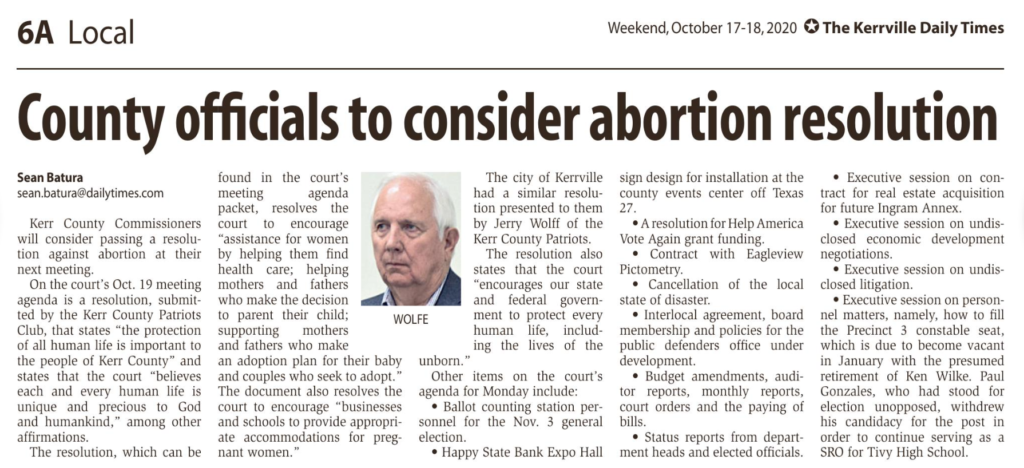
In December, the Patriots group requested another resolution supporting Second Amendment rights. This resolution met with fierce criticism from Republican Sheriff Rusty Hierholzer, who stated that the resolution was, “a feel-good statement that means nothing more than my toilet paper.”
Republican Harley Belew of Precinct 1 recently cast the lone ballot against a proclamation supporting night skies initiatives, stating that resolutions like this one start out voluntary, but “Then it becomes a mandate.” So we await his decision on the abortion proclamation, since it could be construed the same way.
Many observers, including your author, see the Patriots’ resolutions for what they are: efforts to divide the community and to nationalize local races with issues that have nothing to do with the duties of the offices that their members seek. Their antics during this election reinforce the need to keep local elections nonpartisan. Debating abortion rights or gun rights is not the job of the local city council or commissioners court — these issues are not within their purview. But by demanding a response on a resolution such as this one, they attempt to bring a controversial issue to bear on these local elections.
Elections should be hard
So what do I mean by, “elections should be hard?” Local elections should be about the issues that we face as a community — a local municipality — and should not be about ideas that are outside the scope or purview of the position that is being sought.
Voters should research each individual candidate and find out which candidate supports programs and solutions for local issues that matter to them. No shortcuts should be allowed, such as party designations, because national party platforms do not address things like street repair, attracting employers, local parks, or civility. Voters should accept the challenge of voting for a person — one of your neighbors, friends, or someone in the pew next to you at church — rather than a slate of ideological ideas that don’t find relevance in local issues.
If a voter knows which political party a candidate aligns with, that information should not necessarily be completely discarded, but can be used as just one more data point in a larger set of information that informs a vote — not the single determining factor. Politicians of all stripes can take positions that are in conflict with a party’s platform. Yet another reason why each race must be considered individually, and another reason that we celebrate the decision to remove “straight ticket voting” from Texas ballots.
Of course, one of Kerrville United’s stated goals is to increase voter participation. If nonpartisan races cause voter turnout to be suppressed, how do we square that circle? Another one of our goals is to increase voter knowledge and civic engagement — not just during elections. In our view, an election with high voter turnout of highly informed voters yields the best results in the long-term. We will continue to advocate for increased voter turnout — especially among younger voters — while also engaging and informing the electorate throughout the cycle of elections as well as between elections when those candidates are governing.
Elections should be hard. They should challenge the candidates to clearly articulate their view on real matters that affect voters. They should challenge voters to cut through the rhetoric and decide which leaders can lead, and which candidates need to get out of the way. And no shortcuts should be used to find that truth.

